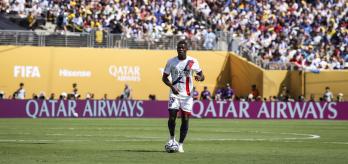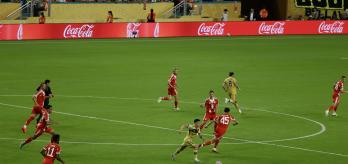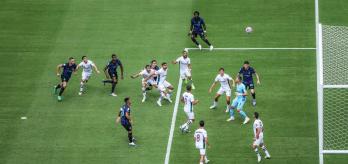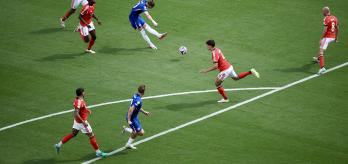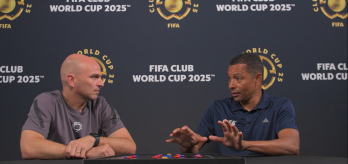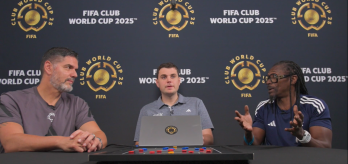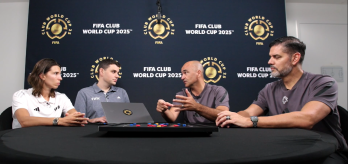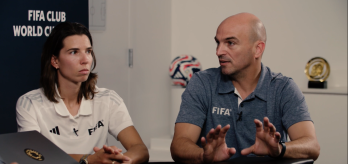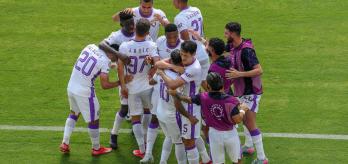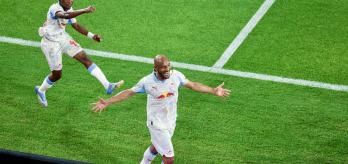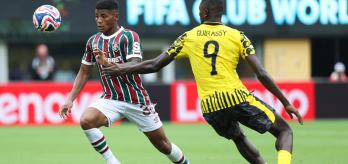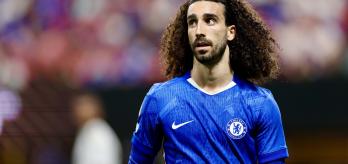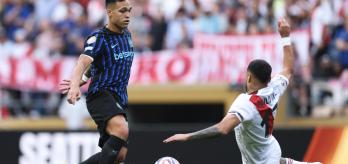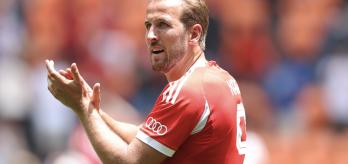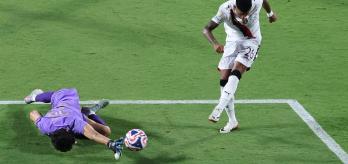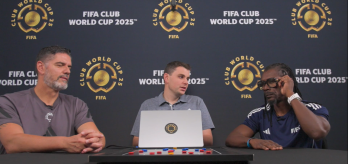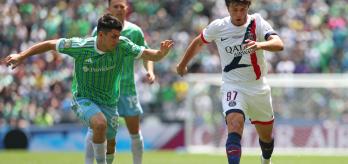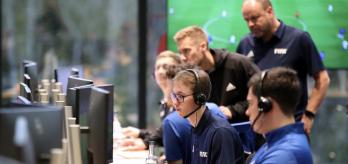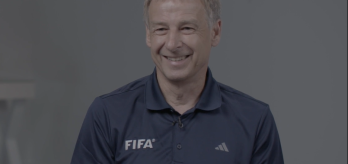When such a large group of people come together and stay together for long periods of time, the spirit within the group can make or break their time in a competition. In this article, former Germany international and Technical Study Group (TSG) expert, Jürgen Klinsmann, discusses the importance of team spirit. Having won the FIFA World Cup in 1990 as a player, and with his experience of being national team head coach for both Germany and the USA’s senior men’s teams, Klinsmann knows exactly how important the group dynamic is when competing in a major tournament.
“We have seen now at the club level what has always been proven by national teams in a World Cup, that the team that is able to stay collectively close together, accepts each other, and has a good, positive spirit can maintain their focus and concentration throughout a four-week period. For some players, that experience was completely new because they have never had the chance to play with their national team in a World Cup, so this tournament was a totally new experience.
“For example, Fluminense from South America, who got to the semi-final with players who have never played in the World Cup and other teams as well. And even with Chelsea and PSG, you have a player like Khvicha Kvaratskhelia (from Georgia) who may never experience playing in a World Cup final with his national team, but he now knows what it’s like to stay together for four weeks and go from game to game, completely focused with a high concentration level and to figure out what to do with all the spare time so that he can keep his focus and strength available for the team.
“That has been fascinating, and these two teams (that made the final) have shown that the collective is far, far more valuable than individual class or superstars, and I give them the biggest compliment.”
Watch interview
People management
A key part of the role of the head coach is to set the tone and culture within the group, where every person feels valued and that their contribution matters. This is especially relevant when only 11 players can start a game and up to five substitutions can be made (not including concussion subs), as it means that not all 26 players will play active minutes in every game.
“People management plays a vital role, and both coaches (PSG and Chelsea) have been able to keep the spirit high in their roster (squad) and in the whole environment. It’s not only the 25/26 players that you carry with you, but also the medical staff, the administrators, the media staff and, nowadays, you have a large group of people that you have to take care of as a head coach of such a big team. They (Luis Enrique and Enzo Maresca) have proven they can do that and can keep the spirit up and the atmosphere positive, and they deserve to be in the final,” Klinsmann explained.
Team spirit and tactics
For any group to function well, especially when under pressure, the team spirit can be the defining factor of success. Tactical plans and physical readiness can mean little if the mindset of the people in the group is not aligned collectively, according to Klinsmann.
“All the managers realise, especially the ones that finish in the final eight, that the spirit of the group is far more important than some small pieces, maybe some small tactical pieces or some of the individual pieces for their top players. It’s only the collectiveness of the players, being there together and covering for each other and for each other’s weaknesses, that is far more important than anything else when you go to a tournament.
“To have an eye on that constantly as a head coach is your highest priority, because you can fix the small problems, but you can never fix the spirit once the spirit is not there or when the players are not fighting for each other. Managers who can keep that positivity and positive energy throughout (what can be) a long four weeks, especially for the two teams that make it to the final, they really deserve a huge compliment.”
The rippling effect
A team that has a strong spirit can generate very powerful momentum. That comes from collective strength and belief in each other. For Klinsmann, this can have a very powerful effect on young children and people watching on, even when they see that spirit in teams that do not win the tournament. He explains how the FIFA Club World Cup™ has been a platform for many teams to showcase how team spirit can influence tactical and technical application on the global stage.
“It’s huge, maybe they (teams) come in as outsiders from the likes of New Zealand or Korea Republic, etc… but it’s big for the region they represent, coming up against the top teams in Europe and South America. This is something that will drive their environments and football in their country, because maybe the Club World Cup is the only way for players or teams from some countries that might not make it to a World Cup with their national team. It opens it up to millions of kids to say to them they still have a chance to play at a World Cup with their club team, even if they might not do it with their national team.”







